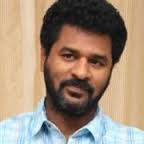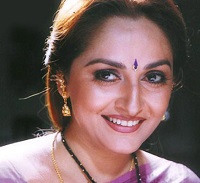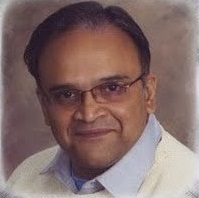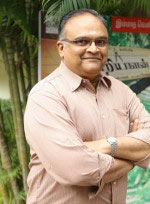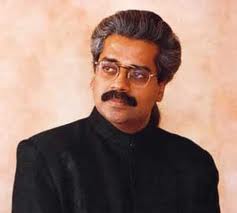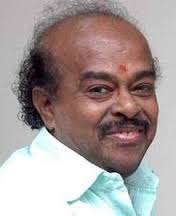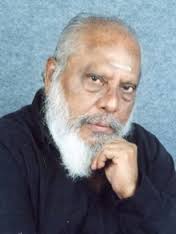
Showing all artists born in April 3
Prabhu Deva
Prabhu Deva (Kannada: ಪ್ರಭು ದೇವ) is an Indian film choreographer, stage dancer, actor and director known for his works predominantly in Tamil, Telugu cinema, Bollywood, Malayalam and Kannada films. In a career spanning twenty-five years, He has performed and designed a wide range of dancing styles. He has garnered two National Film Awards for Best Choreography, and has been widely referred in the media as India's Michael Jackson.
After a sequence of successful attempts in acting in the 1990s and early 2000s such as Kadhalan (1994), Raasaiyya (1995), Minsara Kanavu (1997), Naam Iruvar Namakku Iruvar (1998), Kaathala Kaathala (1998) and Vanathai Pola (2000), Prabhu Dheva ventured into direction with 2005 Telugu blockbuster Nuvvostanante Nenoddantana. He then went on to direct successful films in Telugu, Hi... See full bio
After a sequence of successful attempts in acting in the 1990s and early 2000s such as Kadhalan (1994), Raasaiyya (1995), Minsara Kanavu (1997), Naam Iruvar Namakku Iruvar (1998), Kaathala Kaathala (1998) and Vanathai Pola (2000), Prabhu Dheva ventured into direction with 2005 Telugu blockbuster Nuvvostanante Nenoddantana. He then went on to direct successful films in Telugu, Hi... See full bio
Known For:
Theal
, Yung Mung Sung
, Devi
, Kalavaadiya Pozhuthugal
, Action Jackson
, Vedi
, Engeyum Kadhal
, Villu
, Pokkiri
, Engal Anna
, Manadhai Thirudivittai
, Alli Thandha Vaanam
, Ullam Kollai Poguthae
, Doubles
, Pennin Manathai Thottu
, James Pandu
, Eazhaiyin Sirippil
, Vaanathaippola
, Kaathala Kaathala
, Naam Iruvar Namakku Iruvar
, V.I.P
, Minsaara Kanavu
, Minsara Kanavu
, Mr Romeo
, Raasaiyya
, Kadhalan
, Walter Vetrivel
, Suriyan
, Idhayam
, Love Birds
Jaya Prada
Jaya Prada is an Indian film actress and politician. She has starred in Telugu, Hindi, Tamil, Kannada, Malayalam, Bengali and Marathi films.
Jaya Prada was born as Lalita Rani on 3 April 1962 in Rajahmundry, Andhra Pradesh, India. Her father Krishna Rao was a Telugu film financier. Her mother Neelaveni enrolled her in dance and music classes at an early age.
When Jaya Prada was fourteen years old, she performed a dance at her school's annual function. A film director in the audience offered her a three-minute dance number in the Telugu film Bhoomi Kosam. She was hesitant, but her family encouraged her to accept it. She was paid only 10 rupees for her work in the film, but the rushes of those three minutes of film were shown to the major figures of the Telugu film industry. Major filmmakers offered her starring roles in qual... See full bio
Jaya Prada was born as Lalita Rani on 3 April 1962 in Rajahmundry, Andhra Pradesh, India. Her father Krishna Rao was a Telugu film financier. Her mother Neelaveni enrolled her in dance and music classes at an early age.
When Jaya Prada was fourteen years old, she performed a dance at her school's annual function. A film director in the audience offered her a three-minute dance number in the Telugu film Bhoomi Kosam. She was hesitant, but her family encouraged her to accept it. She was paid only 10 rupees for her work in the film, but the rushes of those three minutes of film were shown to the major figures of the Telugu film industry. Major filmmakers offered her starring roles in qual... See full bio
Known For:
Dasavathaaram
, Ninaithale Inikkum
Mohan Raman
Mohan Raman (born: Pattabhi Venkata Raman) is an Indian film and television actor and management trainer.
He is acclaimed for playing supportive or negative roles in Tamil television serials prominent ones being Marmadesam and Chidambara Rahasiyam directed by Tamil director Naga.
He is the eldest son of lawyer and politician V. P. Raman and elder brother of P. S. Raman, Former Advocate-General of Tamil Nadu.
His daughter Vidyullekha Raman made her debut in Neethane En Ponvasantham.
He is acclaimed for playing supportive or negative roles in Tamil television serials prominent ones being Marmadesam and Chidambara Rahasiyam directed by Tamil director Naga.
He is the eldest son of lawyer and politician V. P. Raman and elder brother of P. S. Raman, Former Advocate-General of Tamil Nadu.
His daughter Vidyullekha Raman made her debut in Neethane En Ponvasantham.
Mohan V. Raman
Mohan Raman (born Pattabhi Venkata Raman on April 3, 1956) is an Indian film and television actor and management trainer. He is acclaimed for playing supportive or negative roles in Tamil television serials prominent ones being Marmadesam and Chidambara Rahasiyam directed by Tamil director Naga. He is the eldest son of lawyer and politician V. P. Raman and elder brother of P. S. Raman, Former Advocate-General of Tamil Nadu. His daughter Vidyullekha Raman made her debut in Neethane En Ponvasantham.
Known For:
Poriyaalan
, Ramanujan
, Devathayai Kanden
, Julie Ganapathi
, Yai Nee Romba Azhaga Irukey
, Chinna Chinna Kannile
, Guru Paarvai
, Iniyavale
, Ulavuthurai
, Abhimanyu
, Minsara Kanavu
, Mr Romeo
, Sivasakthi
, Seethanam
, Mahanadi
Hariharan
Hariharan born 3 April 1955 is an Indian playback singer who has sung for Malayalam, Tamil, Hindi, Kannada, Marathi, Bhojpuri and Telugu films, an established ghazal singer, and one of the pioneers of Indian fusion music. His melody is strongly appreciated by the film fraternity. In 2004, he was honoured with the Padma Shri by the Government of India and is a two-time National Award winner.
Hariharan, associating with Leslie Lewis, formed Colonial Cousins, a two-member band. They have cut many private music albums and also scored music for few feature films in Tamil cinema and Bollywood cinema.
Born in Kerala (Thiruvananthapuram)to a Tamil speaking Iyer family, he grew up in Mumbai and has bachelor degrees in science and law. He did his collegiate studies from S.I.E.S. College. The son of renowned Carnatic vocalists, Shrimati Ala... See full bio
Hariharan, associating with Leslie Lewis, formed Colonial Cousins, a two-member band. They have cut many private music albums and also scored music for few feature films in Tamil cinema and Bollywood cinema.
Born in Kerala (Thiruvananthapuram)to a Tamil speaking Iyer family, he grew up in Mumbai and has bachelor degrees in science and law. He did his collegiate studies from S.I.E.S. College. The son of renowned Carnatic vocalists, Shrimati Ala... See full bio
Known For:
Enna Solla Pogirai
Rama Narayanan
Rama Narayanan (3 April 1949 – 22 June 2014) was an Indian film director and producer. In the 1980s, he was known as a director who specialised in shooting commercial films in which animals played vital roles, while in the 1990s, several of his films were based on Hindu devotional subjects.
He has also headed the Tamil Film Producers Council (TFPC) for three consecutive elections, before resigning in 2011. He died on 22 June 2014 at a Singapore Hospital due to kidney related ailments.
Rama Narayanan came to Chennai intending to become a songwriter, but he became a dialogue writer for films. He and his friend M. A. Khaja started to write dialogues together under the pen name Ram-Rahim.
In 1976, Rama Narayanan wrote his first story, screenplay and dialogue for the film Aasai Arubadhu Naal.He produced his firs... See full bio
He has also headed the Tamil Film Producers Council (TFPC) for three consecutive elections, before resigning in 2011. He died on 22 June 2014 at a Singapore Hospital due to kidney related ailments.
Rama Narayanan came to Chennai intending to become a songwriter, but he became a dialogue writer for films. He and his friend M. A. Khaja started to write dialogues together under the pen name Ram-Rahim.
In 1976, Rama Narayanan wrote his first story, screenplay and dialogue for the film Aasai Arubadhu Naal.He produced his firs... See full bio
M. Bhaskar
M.Bhaskar (Tamil:மா.பாஸ்கர்; 3 April 1935 – 13 July 2013) was a South Indian filmmaker who worked mainly in the Tamil film industry. Bhaskar started his film career as an assistant to director C. V. Sridhar. After relieving from his mentor and guru C. V. Sridhar, he was working under Sundaram's Modern Theaters, Chinnappa Thevar (along with S. P. Muthuraman, Panju Arunachalam, Thuyavan, Uthiripookkal balakrishnan and others). He also worked for the Hollywood Company '20th Century Fox', during their production in Goa, India.
M. Bhaskar hailed from a village called Pattamputhur, Virudhunagar district. He started his career as an associate to C. V. Sridhar. He made his directorial debut with Bairavi. The film gave major breakthrough in the career of Rajinikanth as a lead actor. Ra... See full bio
M. Bhaskar hailed from a village called Pattamputhur, Virudhunagar district. He started his career as an associate to C. V. Sridhar. He made his directorial debut with Bairavi. The film gave major breakthrough in the career of Rajinikanth as a lead actor. Ra... See full bio
Known For:
Sattathin Thirappu Vizhaa

